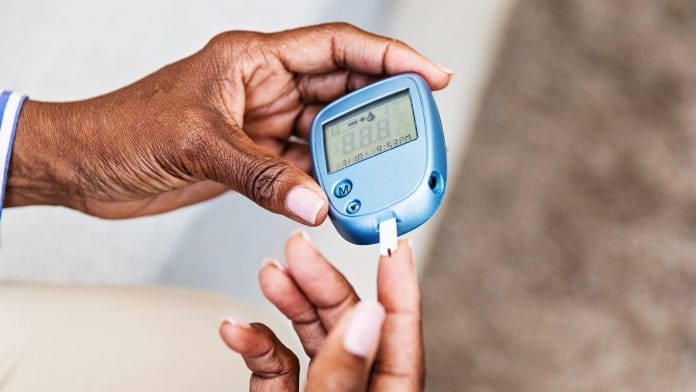
A clinical trial will test the efficacy of the treatment IMCY-0098 in patients with recent onset Type 1 Diabetes.
Imcyse, a clinical-stage biopharmaceutical company pioneering the development of a new class of active and specific immunotherapies for the treatment of severe autoimmune diseases, recently announced the first patients’ treatment in the IMCY-0098 Proof of ACtion in Type 1 Diabetes (IMPACT) study with IMCY-0098.
The IMPACT Study is a multi-centre, randomised, double-blind, placebo-controlled study in newly diagnosed Type 1 Diabetes patients. Study sites will be located across Europe, with around 13 sites in Belgium, Sweden, Slovenia, Italy, and the UK.
The IMPACT trial, in collaboration with INNODIA, will evaluate the ability of the Imotope IMCY-0098 to preserve beta-cell function in adult and adolescent patients with recent onset Type 1 Diabetes, as well as determining the best and safest dose and regimen for continued development.
Developing treatment for Type 1 Diabetes
IMCY-0098 is the most advanced Imotope in development and is designed to halt the progression of diabetes by stopping the body’s immune system from attacking beta-cells. With early intervention, the aim is to preserve the pancreas’ ability to produce insulin and allow patients to manage the disease without the need for daily insulin injections. The Imcyse approach is unique and distinct to general tolerance induction or overall “immune-suppression”.
Imotopes specifically target the autoimmune pathway without harming the rest of the immune system. In the first-in-human EXALT trial, IMCY-0098 was found to be safe and well tolerated at all doses tested. Initial trends of clinical and immunological benefits were also observed.
Denis Bedoret, Imcyse CEO, said: “Imcyse is developing a new approach to treating Type 1 Diabetes, which seeks to intervene early enough in the disease progression to preserve pancreatic function by specifically targeting the autoreactive immune cells. Our Imotope technology has great potential to result in a cure for patients suffering from this and other life altering autoimmune diseases.”
The first step of the study will enroll 24 participants, aged 18 – 45 and diagnosed within nine weeks (date of first insulin injection), who are randomly assigned to one of three treatment arms and will follow patients for up to 48 weeks. This step will explore the immune signature and the safety of the treatment comparing two different doses with placebo. Results from these findings will be used to determine the best dose and regimen for IMCY-0098 to be used in the second step.
The second step will see 60 participants, both adults between 18 – 45 years and adolescents aged 12 – 17 recruited to evaluate the treatment effect on the preservation of beta-cell function.
Expert in the field of Type 1 Diabetes and co-ordinator of INNODIA (the largest European Type 1 Diabetes network), Professor (Dr) Chantal Mathieu, said: “INNODIA is privileged to collaborate with Imcyse on the IMPACT programme to progress the development of the Imotope which is a very interesting and different approach to preserve beta-cells. Together we have been able to design a clinical trial that will truly benefit patients by determining the most appropriate and safe dose to test the drug for efficacy in recently diagnosed Type 1 Diabetes patients.”
Patient recruitment is ongoing and topline data from the study is anticipated in the second half of 2023.























We are waiting for the cure 😁, we know that you can do it, we believe that you can do it, imagine no type 1 = dreams come true.
Diabetes type 1 can destroy dreams 😢, maybe a kid want to become a pilot, he can’t, maybe a kid want to join police, he can’t, maybe a kid want to go in army, he can’t, maybe he want to be a firefighter, he can’t…
People saying that insulin is expensive and thinking about no cure because once a cure is released, insulin factory’s will no more produce money so they will bankrupt…, i hope is not like that, money are just papers, dreams of the childrens are the real money…
Just waiting and hoping for this dream of diabetes cure to come true that will be one of my happiest day ever.. please make it happen for sure you can do it
I was told there would be a cure when I was diagnosed 10 years ago and it has been a similar story for most diabetics. I have also been reading about research involving stem cells since the nineties and yet nothing ever comes of it. I even spoke to some diabetics on facebook a few years ago who had their own generated stem cells transplanted into them. So what happened to that clinical trial? Why are all diabetics not being offered to have this to cure our diabetes? Why is it taking so long? Yet we are all meant to believe they have knocked out a successful vaccine/vaccines for corona virus-something they say have not even isolated yet and generated the code for using AI. They say they don’t even know why it affects some people more that others yet supposedly have cured it with a vaccine-rubbish!!!. It’s been a hundred years since the invention of insulin and we still managing this condition like our great great grandparents did. Diabetes unfortunately is a cashcow for a lot of powerful people and they will keep us all on insulin for as long as they can…..
Absolutely agree. As a diabetic for 30 years, I find it very difficult to believe the diabetes industry will just allow a cure to be found. I really doubt it. They’ve been stringing us along with cure talk for 40 years. There is always a “break through” but the cure is always a “long, long way away.” It’s bs. Look at how much they charge for cgm? We are keeping the industry in business. It will stay that way. Everything is greed and I expect no less. It will be 2100 before they cure this (if ever)